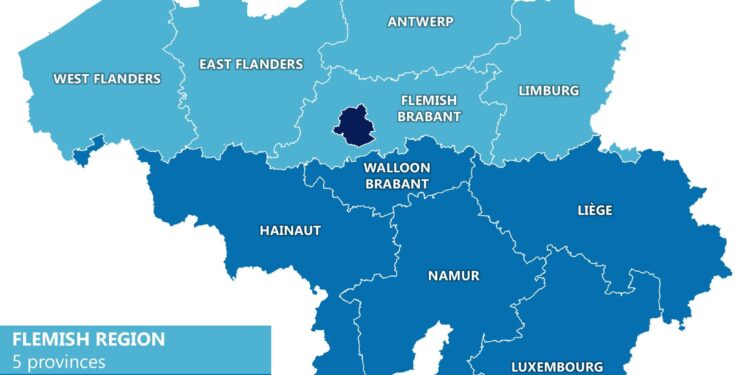Belgium has announced its decision to recognize Palestine at the United Nations General Assembly, marking a significant development in international diplomacy. The move, reported by China Daily, underscores Belgium’s support for a two-state solution and reflects growing global engagement on the Israeli-Palestinian conflict. This recognition is expected to influence ongoing debates within the UN and signal shifting dynamics in European foreign policy toward the Middle East.
Belgium Announces Support for Palestine Recognition at UN General Assembly
Belgium has officially declared its intention to back Palestine’s recognition during the upcoming United Nations General Assembly session. This significant political move underscores Belgium’s commitment to supporting diplomatic progress in the Middle East conflict. The announcement comes amid growing international calls for a two-state solution and increased representation for Palestine on the global stage. Belgian officials emphasized that the decision aligns with principles of justice and the promotion of peaceful coexistence between Israel and Palestine.
Key points of Belgium’s stance include:
- Backing Palestine’s full membership bid at the UN
- Encouraging dialogue to resume peace negotiations
- Supporting humanitarian aid and development efforts in Palestinian territories
- Advocating for a legally recognized sovereign Palestinian state alongside Israel
| Aspect | Belgium’s Position |
|---|---|
| Recognition | Full membership support |
| Peace Process | Renewed negotiations encouraged |
| Humanitarian Aid | Increased funding pledged |
| Diplomatic Relations | Balanced engagement |
Implications of Belgium’s Move on EU Diplomacy and Middle East Peace Efforts
Belgium’s decision to recognize Palestine at the UN General Assembly signals a significant shift within the European Union’s diplomatic stance on the Israeli-Palestinian conflict. This move introduces new dynamics into EU cohesion, as member states may feel pressured to reassess their positions, potentially fragmenting the long-standing unified approach that has often prioritized cautious engagement over formal recognition. Brussels, traditionally a hub for consensus-driven diplomacy, might now face challenges in maintaining a balanced stance between advocating for Palestinian statehood and preserving strategic ties with Israel.
The announcement also reverberates through ongoing Middle East peace efforts, raising both hope and concern. While supporters argue that Belgium’s action could invigorate stalled negotiations by empowering Palestinian representation, critics fear it may complicate dialogue by antagonizing key actors involved in peace talks. Key implications include:
- Increased diplomatic pressure on the EU to adopt a collective position regarding Palestine.
- Potential shifts in EU financial aid priorities linked to peacebuilding projects in the region.
- Heightened tensions between the EU and Israel, possibly impacting cooperation on security and trade.
| Aspect | Potential Impact |
|---|---|
| EU Unity | Pressure for policy realignment |
| Middle East Peace Talks | Possible reinvigoration or new complications |
| Israel-EU Relations | Strained diplomatic ties |
| Palestinian Representation | Enhanced international legitimacy |
Recommendations for Stakeholders to Navigate the Shifting Political Landscape
As geopolitical dynamics evolve with Belgium’s move to recognize Palestine at the UN General Assembly, stakeholders must engage in strategic diplomacy and multilateral dialogue to safeguard their interests. Governments and international organizations should prioritize open communication channels to mitigate tensions and foster collaboration. Additionally, businesses operating within or connected to the region should conduct thorough risk assessments that incorporate potential regulatory changes and geopolitical shifts.
To adapt effectively, it is crucial for these actors to focus on key action points such as:
- Enhancing regional partnerships through trade and cultural exchanges to build resilience.
- Monitoring policy developments related to recognition and international law to ensure compliance and foresight.
- Investing in conflict-sensitive engagement initiatives that promote sustainable economic and social outcomes.
| Stakeholder | Recommended Action | Expected Outcome |
|---|---|---|
| Governments | Engage in proactive diplomacy | Reduced geopolitical friction |
| Businesses | Conduct geopolitical risk analysis | Strategic market positioning |
| NGOs | Promote dialogue and peacebuilding | Strengthened community relations |
Concluding Remarks
Belgium’s decision to recognize Palestine at the UN General Assembly marks a significant development in international diplomacy, reflecting growing support for Palestinian statehood on the global stage. As this move unfolds, it is likely to influence ongoing debates within the United Nations and among key stakeholders in the Middle East peace process. Observers will be watching closely to see how this recognition impacts Belgium’s diplomatic relations and the broader quest for a lasting resolution to the Israeli-Palestinian conflict.
















